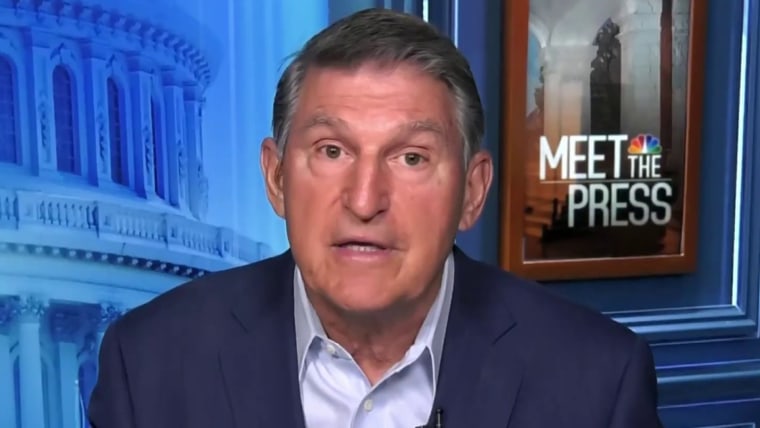WASHINGTON — The newly enacted debt ceiling law all but assures that the winner of the 2024 presidential election and the next Congress will face another potentially calamitous default deadline soon after taking office.
The measure signed by President Joe Biden over the weekend suspends the debt limit until Jan. 1, 2025, with an additional few months for the Treasury Department to use “extraordinary measures” to pay the bills.
It’s not just the debt ceiling, which is more likely to be contentious if Biden wins re-election. The party that controls Congress and the White House will set the agenda on consequential issues that will shape the next decade of tax, spending and health care policy in the first year of the new term. The new debt limit law also includes a two-year budget agreement that expires in 2025. In addition, enhanced Obamacare subsidies and major parts of the 2017 Republican tax cuts named for former President Donald Trump will likewise expire at the end of 2025.
Rep. Brendan Boyle, D-Pa., the ranking member of the House Budget Committee, told NBC News that the consequences of the next election are “incredible.”
“The stakes of the 2024 election are enormous, not just for our democracy, but for domestic policy. So many major pieces of legislation over the last several years expire in 2025,” said Boyle, who’s in line to be chairman of the House Budget Committee if Democrats win control of the chamber. “So the winners of the next election will have the ability to shape policy for the rest of the decade.”
Enhanced subsidies for people who buy health insurance under the Affordable Care Act, passed by Democrats on a party-line vote under the Inflation Reduction Act, expire at the end of 2025, creating a high-stakes moment for the signature legislative achievement of the Obama-Biden administration. The impact will be felt by the estimated millions of Americans who gained coverage due to the enhanced subsidies.
And the sweeping Republican tax law signed by Trump will expire after 2025. The law’s corporate tax reductions were made permanent, but its income tax cuts for individuals across the spectrum are set to sunset. Its $10,000 cap on the state and local tax (known as SALT) deduction will also be lifted and reset to unlimited.
“It’s hard to overstate how important the 2024 election is going to be,” said Rep. Dusty Johnson, R-S.D., the chair of the center-right Main Street Caucus. “We have a number of major policy issues that are going to help to set a trajectory for our country over what will probably be the next 10 years.”
“Listen, 2024 is big, big, big,” he said.
The dynamics of the next debt limit deadline will depend on who wins the 2024 election. If Biden wins re-election and Republicans keep control of the House, it could spark a repeat of the recent showdown over whether to pay the country’s bills or default.
Rep. Richard Neal, D-Mass., the ranking member of the powerful Ways and Means Committee, said Democrats would make it a “priority” to extend the ACA subsidies and seek “a fairer version” of the Trump tax cuts, which means ending it for upper incomes.
Both Obamacare and the Trump tax law were passed on a party-line basis under the “reconciliation” process, which can evade a Senate filibuster but requires that policies that raise the deficit sunset. Biden is personally invested in the ACA money, much as Trump, the GOP front-runner in the polls for 2024, is personally invested in his tax law.
“There are a lot of contentious issues that are yet to be resolved,” Neal said. “I think for the election cycle, it means that these concerns are paramount.”
A Republican-controlled Washington would be less inclined to renew the ACA funding — and more inclined to extend the GOP tax cuts, perhaps with some adjustments.
“Clearly, there’s a lot of support for them. Clearly, they helped grow the American economy,” Johnson said of the 2017 tax cuts. “But that’s not to say the policy can’t be tweaked in some way.”
Former policy aides on Capitol Hill say it’s difficult to know how the issues will shake out without knowing who wins control of the White House and both chambers of Congress next fall.
“2025 is shaping up to be a big year for economic policy. Certainly, the policy stakes in the 2024 election will make the choices clear,” said Charlie Ellsworth, a former legislative aide who worked on budget and appropriations for Senate Democratic leader Chuck Schumer, D-N.Y. “How that manifests in congressional action is really hard to say until we see the outcomes.”
Brian Riedl, who served as chief economist for then-Sen. Rob Portman, R-Ohio, said 2025 “will bring extraordinarily important tax-and-spending negotiations.”
“Paradoxically, the amount of policies requiring attention — expiring tax cuts, spending caps, and health policies — may actually ease the negotiations by giving each side a stake in the outcome, and a broad field of policies to trade-off against each other,” said Riedl, now a fellow at the right-leaning Manhattan Institute.
“And hanging over this debate,” Riedl added, “will be the impending insolvency of the Social Security and Medicare trust funds, scheduled for a few years later.”
Source: | This article originally belongs to Nbcnews.com










